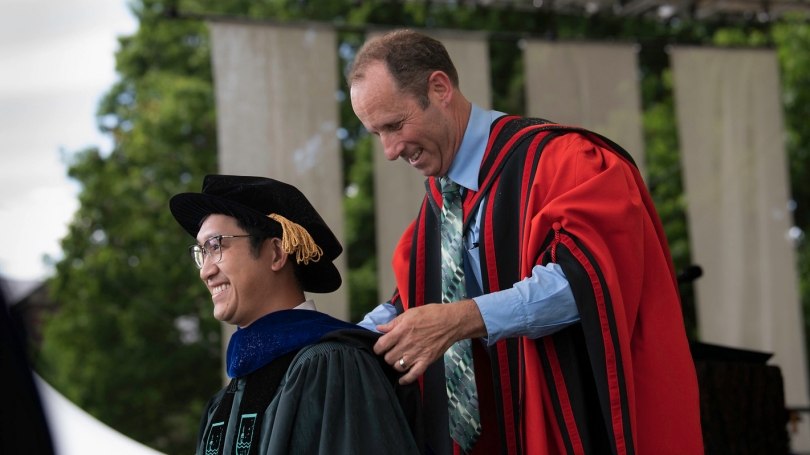In the second year, students establish a thesis advisory committee. Research progress is monitored by meetings with this committee at least once a year. When the student, thesis advisor, and thesis advisory committee agree that the thesis is near completion, the student begins compiling and writing the thesis. For many students at this stage, thesis research has already resulted in publication in peer reviewed journals. After submission of the thesis and a public presentation, the student defends the thesis before an examination committee. On average, students complete their doctoral training in about six years.
